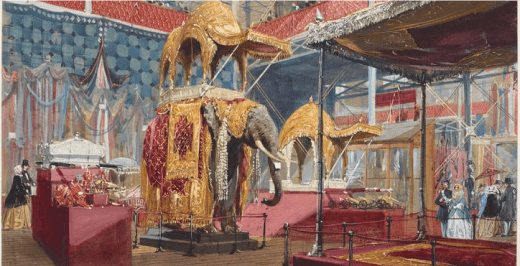
Overview
Beginning in the mid-19th century, this series explores the evolution of craft in India, and focuses on the collaborations and interactions between craftspeople, designers, policymakers, collectors, activists and consumers. It examines the pivotal roles of museums, schools, exhibitions, NGOs, and the market in shaping the historical narratives of the development of craft, with reference to art, architecture, design, and religious faith. The lectures will also provide insights into the relationship between state-led economic planning and development with questions of heritage, trusteeship, and recognition of the knowledge systems of craftspeople. Thus, it aims to foster critical thinking about craft's place in India's postcolonial and contemporary history.


About the Presenter
Dr Annapurna Garimella is an eminent art historian and designer. Her research focuses on late mediaeval Indic architecture, and the history and practices of vernacular visual and built cultures in post-independent India. Dr Garimella is the Managing Trustee of Art, Resources and Teaching Trust (A.R.T.) and also heads Jackfruit Research and Design, an organisation with a specialised portfolio of design, research and curation.
Run by Dr Garimella and Sindhura D Manjunath, A.R.T. manages a public art library, conducts independent research projects, and teaches and advises university students and the general public.
This lecture series is absolutely free and open to all. Whether you are a beginner or an expert, it offers something meaningful for everybody to take away. The series will be held online via Zoom, so you can access it from anywhere in the world. Presented by Dr Annapurna Garimella, the lectures will also feature notable art practitioners and scholars as guest speakers.
Register
Total Lectures
9
Dates
21st Feb –
20th March 2024
Cost
Free
Platform
Live on Zoom
Outcomes
Certificate of Attendance
Prerequisites
None
Lecture
Guest Speaker
Date (2024)
1. Introduction
-
21 February
2. The Exhibition, the Museum, and the Art School
-
23 February
3. Drawing, Collecting and Colonial Modernity in India
Dr Nadine Zubair
28 February
4. Colonial and Transnational Arts and Crafts Movements
Nia Thandapani
01 March
5. Self-Reliance, Swadeshi and Industrialisation
Dr Amanda Lanzillo
05 March
6. Crafting the Nation after 1947: The School, the Museum, the Government
-
08 March
7. Maker-Entrepreneurs, Educationists, Revivalists
-
13 March
8. Consuming Craft, Crafting Lives: 1981 and after
Laila Tyabji
15 March
9. The Messy Present: When Craftspeople Question Craft Discourse
Sudheer Rajbhar
20 March
Our Programme

01Introduction
21st February, 2024 | 6:00 pm IST
By Dr Annapurna Garimella

What is craft? Is it an object, a process or an idea? Is it traditional or modern? Does it fall under the purview of art? How do we locate craft within evolving structures of the market? What is the relationship of craft with the construction of national and transnational historical narratives? This session will introduce the many ways of thinking about crafts and craftspeople, and familiarise you with the themes that will be explored in the forthcoming lectures.
21st February, 2024 | 6:00 pm IST
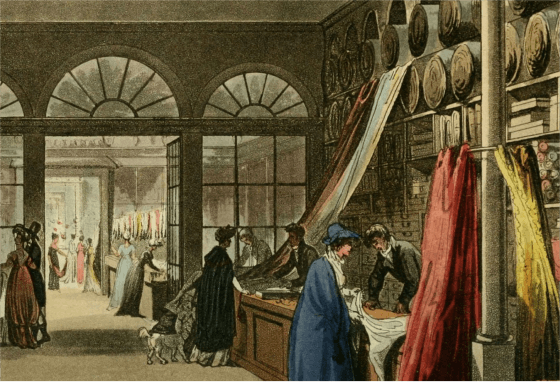
02The Exhibition, the Museum, and the Art School
23rd February, 2024 | 6:00 pm IST
By Dr Annapurna Garimella

Situated within the context of colonialism and industrialisation in Britain, this lecture explores the advent of three pivotal institutions and practices — world expositions, the museum and the art school, including drawing methods that bridged emerging distinctions between fine and industrial art. Through case studies of the Great Exhibition of 1851, the Victoria & Albert Museum, and more, it examines how these influenced crafts and taste-making in 19th-century Europe.
23rd February, 2024 | 6:00 pm IST

03Drawing, Collecting and Colonial Modernity in India
28th February, 2024 | 6:00 pm IST
By Dr Annapurna Garimella with Dr Nadine Zubair


This lecture investigates the relationship between transformations in Britain in the late 1800s, and changes in design and labour practices of craftspeople in India. We move from the South Kensington Museum in London to Lahore’s colonial art school, from collectors and entrepreneurs to local artisans, to study shifting trends in theory, practice, pedagogy and collection of craft — and delve into the new definitions of craft that develop with the onset of colonial modernity in India.
28th February, 2024 | 6:00 pm IST
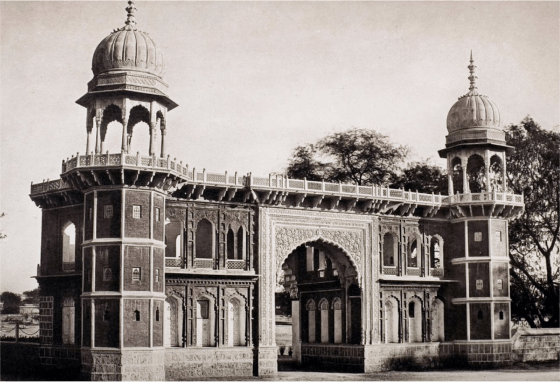
04Colonial and Transnational Arts and Crafts Movements
1st March, 2024 | 6:00 pm IST
By Dr Annapurna Garimella with Nia Thandapani


The Art and Crafts Movement in England developed primarily as a reaction to the challenges of industrialisation. In this lecture, we will learn about the movement and its pioneers, William and May Morris, and Philip Webb. We will critically engage with the fundamental ideas of the movement, including distinct approaches to things, labour, design and ornamentation. We will also discuss its views on Indian crafts and craftspeople, with a focus on architects and carpenters.
1st March, 2024 | 6:00 pm IST

05Self-Reliance, Swadeshi and Industrialisation
5th March, 2024 | 6:00 pm IST
By Dr Annapurna Garimella with Dr Amanda Lanzillo


What is the link between Rabindranath Tagore’s ‘Swadeshi’ ink that rivalled its foreign counterparts and Muslim artisans who exchanged poetry on adapting to new technologies? The history of crafts in India during the independence struggle was at the heart of complex economic and symbolic transformations. In this lecture, we will contemplate the wheel as a metaphor for change, from Gandhi's charkha to El Lissitzky’s Proun, and discuss diverse themes of gender, community, the call for self-reliance, and revival of small-scale industries during the nationalist movement.
5th March, 2024 | 6:00 pm IST
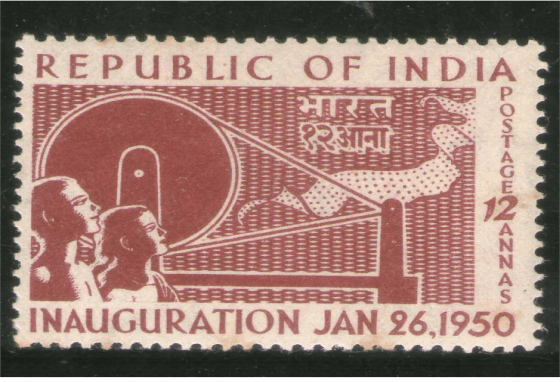
06Crafting the Nation after 1947: The School, the Museum, the Government
8th March, 2024 | 6:00 pm IST
By Dr Annapurna Garimella

Craft traditions became intricately woven into the economic and cultural dimensions of a developing India with their incorporation into the Five-Year Plan in the late 1950s. In this lecture, we will explore how India witnessed a mushrooming of national and state-level organisations. Museums and institutions such as the National Crafts Museum and the National Institute of Design were united in their paradoxical attempt to establish “Indianness” through “traditional” craft while simultaneously positing it as the future of design.
8th March, 2024 | 6:00 pm IST
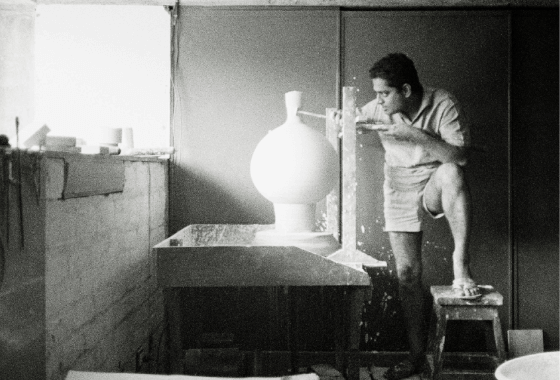
07Maker-Entrepreneurs, Educationists, Revivalists
13th March, 2024 | 6:00 pm IST
By Dr Annapurna Garimella

Behind the resurgence of craft in the Indian cultural sphere was the contribution of many educationists, revivalists, experimenters and entrepreneurs who challenged the status quo. They made pedagogical interventions, blended traditional techniques with modern art, and positioned Indian crafts in domestic and international markets. This lecture will critically examine their roles, paying particular attention to Kamaladevi Chattopadhay, who advocated for economic stability, dignity and recognition of crafts and craftspersons.
13th March, 2024 | 6:00 pm IST

08Consuming Craft, Crafting Lives: 1981 and after
15th March, 2024 | 6:00 pm IST
By Dr Annapurna Garimella with Laila Tyabji


Any account of the modern history of craft is incomplete without mentions of the modern consumer and the mushrooming of designer boutiques. This lecture presents a compelling contrast between the aesheticisation of craft into a marketable and profitable product on the one hand, and on the other, the role of non-profit organisations and initiatives that empower craftspeople with market knowledge through profit-sharing models.
15th March, 2024 | 6:00 pm IST

09The Messy Present: When Craftspeople Question Craft Discourse
20th March, 2024 | 6:00 pm IST
By Dr Annapurna Garimella with Sudheer Rajbhar


In this final lecture, we will examine the contentious relationship between the designer and the craftsperson, taking note of how the latter has questioned the pre-existing power imbalances and demanded a shift towards collaborative efforts. We will be joined by Sudheer Rajbhar, the founder of Chamar Studio and the non-profit Foundation Chamar, to learn and discuss how initiatives such as these offer innovative models for artisans to reclaim control of the market and assert ownership over their craft.
20th March, 2024 | 6:00 pm IST
About the Speakers

Annapurna Garimella
Art Historian, Designer

Dr Annapurna Garimella is an art historian and designer. Her research focuses on late mediaeval Indic architecture and the history and practices of vernacular visual and built cultures in India after Independence. Dr Garimella is the Managing Trustee of Art, Resources and Teaching Trust, which has a research library and conducts independent research and teaching. She also heads Jackfruit Research and Design, an organisation with a specialised portfolio of design, research and curation. Jackfruit’s recent curatorial projects include Mutable: Ceramic and Clay Art in India Since 1947 (Piramal Museum of Art, 2017) and The Past has a Home in the Future (Dhoomimal Gallery, Connaught Place, 2024). Her newest books are the co-edited Marg volume titled The Contemporary Hindu Temple: Fragments for a History (2019) and The Long Arc of South Asian Art: A Reader in Honor of Vidya Dehejia (Women Unlimited, 2022). Designing India 1947 to the Present; A Face on a Face: South Asian Masks in the Vaidya Collection; and Digesting the Past: The Discourse of Sacralized Architectural Renovation in Southern India (14th-17th Centuries) are book manuscripts under preparation.

Dr Nadine Zubair
Art Historian, Digital Humanities Manager

Dr Nadine Zubair is the Digital Humanities Manager at the Faculty of Arts and Humanities at the University of East Anglia (UEA). She has a PhD in South Asian architectural history from the Department of Art History and World Art Studies at UEA. Previously, she has completed an MSc in Information Systems Management from Carnegie Mellon University, an MA in South Asian Art History from the University of Pennsylvania, and an MA in South Asian archaeology from the University of Peshawar. Her dissertation title is “Material Histories and Wood-Carving: Fragments from Modern Punjab,” which was fully funded by the South Asian Decorative Arts and Crafts Collection (SADACC) in Norwich.

Nia Thandapani
Design Historian, Graphic Designer

Nia Thandapani is a design historian and graphic designer, whose work focuses on colonial and post-independence design in the Indian subcontinent and the United Kingdom, specifically engaging with imperialism’s presence within museum and heritage spaces, and its impact on design practice and its outcomes. She is co-founder of Chandigarh Chairs, a long-term project that works towards a critical re-evaluation of the history of Chandigarh’s modernist furniture. As part of the collaborative duo Studio Carrom, Nia was a 2019 artist-in-residence at the William Morris Gallery in London and co-created the exhibition “Distant Fellowship” which explored and problematised Morris’s connections with South Asia. Nia’s creative work includes artist books, alternative museum guides, exhibitions and installations, and experimental zines.

Dr Amanda Lanzillo
Historian, Lecturer

Dr Amanda Lanzillo is Lecturer in South Asian History at Brunel University London, UK. She is an historian focused on the intersections of labour, religion and technology in colonial-era India. Her first book, Pious Labor: Islam, Artisanship, and Technology in Colonial India (University of California Press, 2024) examines Muslim artisan communities’ religious and material engagement with new industrial technologies in nineteenth- and early twentieth-century north India. Amanda holds a PhD in history from Indiana University, USA, and was previously a Cotsen Postdoctoral Fellow at the Princeton University Society of Fellows, USA. Her research has appeared in journals such as Modern Asian Studies, South Asia, and the Journal of Social History. Her public scholarship has been published by media organisations such as The Wire, Scroll, and Himal.

Laila Tyabji
Social Worker, Designer, Writer

Laila Tyabji is an Indian social worker, designer, writer and craft activist. She is co-founder and chairperson of Dastkar, a Society for Crafts & Craftspeople, and has been working in the crafts sector since 1978. She was awarded the Padma Shri award in 2012 for her extensive contributions to Indian crafts, and is the second-ever recipient and the first Asian to receive the Aid to Artisans Preservation of Craft Award in New York in 2003.

Sudheer Rajbhar
Artist, Activist, Designer

Sudheer Rajbhar is a Mumbai-based artist, activist and designer. He is the founder of Chamar Studio, an emerging design studio and leatherworking cooperative based in Dharavi that works to overcome centuries of caste-based oppression and recently state-sanctioned leather bans. By replacing leather with recycled rubber from tire waste, Chamar Studio works with Dalit and Muslim leatherworkers to create items such as bags and shoes. He is represented by Gallery æquō and his works have been exhibited at PAD Paris, Serendipity Art Festival and Clark House. He is also the recipient of Royal Ontario Museum’s 2021–22 I ARTS Textiles of India Grant along with Sajdeep Soomal.
Contact Information
If you have any additional inquiries or need assistance, please don’t hesitate to contact Sara Krishnan, Senior Project Manager (Online Courses) at sara.krishnan@map-india.org.